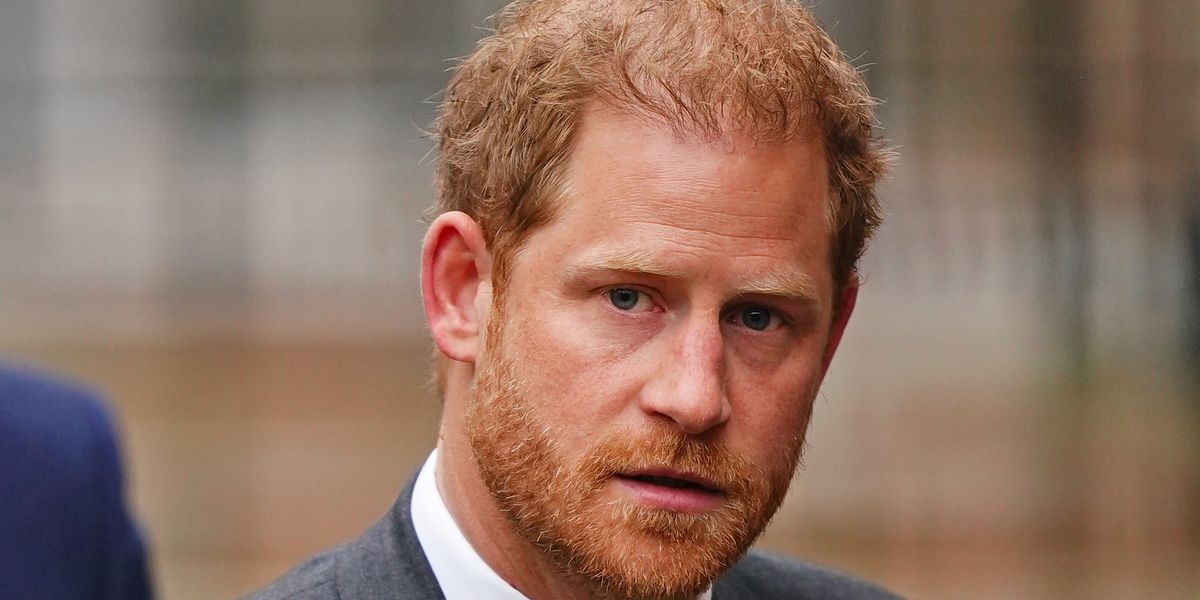The Sealed Saga: Prince Harry’s Visa Records and the Legal Battle Ahead
In a recent development that has captured public attention, a lawsuit seeking the release of Prince Harry’s U.S. visa records has taken a significant turn. The case, initiated by the conservative Heritage Foundation, has seen its latest ruling sealed from public view, raising questions about transparency and the implications of the Duke of Sussex’s past admissions regarding drug use.
The Legal Challenge
The Heritage Foundation, a prominent think tank based in Washington D.C., is challenging the U.S. government to disclose its records concerning Prince Harry’s visa application. This challenge is rooted in the Duke’s candid revelations in his memoir, "Spare," where he openly admitted to using drugs such as marijuana, cocaine, and psychedelic mushrooms. Under U.S. immigration law, visa applicants are required to declare any history of drug use, and failure to do so can result in severe consequences, including deportation.
On September 9, two sealed orders and a sealed "memorandum opinion" were filed in court, effectively closing the case for public scrutiny. While the ruling is currently inaccessible, it leaves the door open for potential appeals by the Heritage Foundation, which remains committed to uncovering the details of Prince Harry’s visa application process.
The Arguments at Play
The Department of Homeland Security (DHS) has argued that visa records constitute "personal information exempt from disclosure." This stance emphasizes the privacy rights of individuals, suggesting that the Duke’s visa paperwork should remain confidential. However, the Heritage Foundation contends that Prince Harry has waived his privacy rights by sharing intimate details of his life in his memoir and other public appearances. They argue that his admissions could imply a level of accountability regarding his visa status.
John Bardo, a lawyer for the DHS, reinforced this argument in court, stating that confessions made in a book do not equate to sworn testimony or proof of behavior. He asserted, "Saying something in a book doesn’t necessarily make it true," highlighting the complexities of proving claims made in autobiographical narratives.
Political Dimensions and Public Reactions
The case has not only legal implications but also political ones. Jane Hartley, the American ambassador to London, has publicly stated that Prince Harry would not face deportation while President Joe Biden is in office. In contrast, former President Donald Trump has expressed a willingness to consider deportation if he were to regain the presidency, showcasing the polarized views surrounding the Duke’s status in the U.S.
Nile Gardiner, director of the Heritage Foundation’s Margaret Thatcher Center for Freedom, criticized the DHS’s arguments as "ridiculous," emphasizing the think tank’s commitment to pursuing the case. Samuel Dewey, a lawyer for the Heritage Foundation, expressed anticipation for the judge’s decision, indicating that the plaintiffs are eager to understand the court’s reasoning behind the sealed orders.
The Duke’s Response
Throughout this legal saga, Prince Harry’s office has maintained a stance of silence regarding the ongoing case. When the Sussexes relocated to the United States, a spokesperson for the Duke asserted that he would adhere to the same legal requirements as any other visa applicant. This statement aimed to quell speculation about preferential treatment, a key concern raised by the Heritage Foundation.
The Future of the Case
As the Heritage Foundation prepares to potentially appeal the sealed ruling, the future of Prince Harry’s visa records remains uncertain. The implications of this case extend beyond the personal realm, touching on issues of privacy, accountability, and the intersection of celebrity and governance.
The sealed nature of the court’s decision raises questions about the balance between individual privacy rights and public interest, particularly when it involves a figure as prominent as Prince Harry. As the legal battle unfolds, it will be crucial to monitor how this case influences perceptions of immigration policy and the treatment of high-profile individuals within the U.S. legal system.
In conclusion, the saga surrounding Prince Harry’s visa records is far from over. With the potential for appeals and ongoing public interest, this case will likely continue to provoke discussion and debate about the complexities of immigration law, celebrity culture, and the rights of individuals in the public eye.
